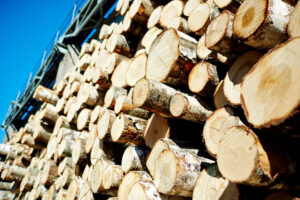Russia’s ongoing war in Ukraine is having a huge effect on the lumber industry, and things may never quite go back to normal
Key Takeaways:
- Russia is the largest lumber exporter in the world
- The Russian-Ukrainian conflict is having a major impact on forest product exports
- The U.S. – and many other countries – are reliant on Russian lumber
- Lumber prices in the U.S. have been escalating for years
- Bans on Russian products are only driving up lumber costs
- Countries that depend on Russian wood need to have a contingency plan
- Companies have to be aware of the possible reputational damage of buying from the wrong countries
Thanks in large part to the pandemic, it is now crystal-clear how connected the world really is. As we in the U.S. (and everywhere else) discovered, no matter what’s happening in another country, it may only be a matter of time before it affects us.
Russia’s current war with Ukraine is another example of why there is no such thing as a completely self-sufficient nation; in some form or function, we are all dependent on other countries. Even though we’re thousands of miles away from this conflict, we are certainly experiencing its effects. Bans and sanctions are taking their toll on a lot of industries, and the lumber market is feeling it particularly hard.
Russia’s role in the world’s forest products
While the oil Russia produces has gotten a lot of attention because of increased gas prices, it’s far from the only product they export. In fact, the country is the largest exporter of lumber in the world. Russia is also the seventh biggest exporter of forest products like sawn wood and pellets. In 2021, those products were valued at over $12 billion.
Russia may actually only be scratching the surface with its lumber production. It has under-utilized forest resources and the potential to dramatically increase its timber harvests. Before invading Ukraine, Russia began programs encouraging investment in the lumber sector to expand and update manufacturing plants and build new facilities. Those investments, however, are almost certainly on the back burner right now.
How do bans affect the marketplace?
Because countries are so interconnected, putting bans on Russian imported goods will have a far-reaching impact on the world and the global economy. Russia may also refuse to stop exporting things which will also have an impact.
Like oil, the U.S. gets a lot of lumber from Russia. In 2019, we imported 426,871 cubic meters of hardwood products from the country, which accounted for almost 9.5% of all the hardwood plywood we use here. Last year, we brought in 558,526 cubic meters, which was a 30% increase. Most of it consists of birch plywood products, which have a wide assortment of applications, including for smaller construction projects, home improvement, and furniture production.
The vast majority – about 40% – of Russia’s wood exports go to China. Other countries that get a lot of their lumber include Egypt, Finland, and Japan. As a result, if these nations can’t get the wood they need for domestic projects and goods that they will then export, economies suffer.
In retaliation for sanctions, Russia did stop exporting several things to the U.S. and other western countries earlier this year, and forest products were on the list. Even before the war in Ukraine (and COVID-19), the lumber market in the U.S. experienced a sharp increase in prices. This is due to a number of factors, including the fact that carbon reserves are resulting in more trees being taken out of harvest rotations. Other things having a big impact on the industry include:
- High demand for building materials
- Added regulations
- An increase in wildfires
- Labor shortages for mills and forestry jobs
When a large percentage of lumber can now no longer come from a major exporter, this ends up being an economic recipe for disaster. What is the current outlook?
The global forest products outlook
As the war in Ukraine rages on, the only thing anyone can be certain of is uncertainty. There is no end in sight for this conflict, and even when it’s over, nobody knows what the outcome – no matter what it is – will mean for the rest of the world.
For the present, countries that are unable to get lumber from Russia – or just refuse to do so – need to create a backup plan. It may need to include increasing their own domestic supply if this is an option or seeking other nations from which they can import wood.
Of course, we all know what happens when supply goes down and demand goes up: Prices can increase dramatically. Eventually, whether due to a boost in production or perhaps an increase in alternative materials, things will level out and go back to – if not normal – at least a new normal that we will all get used to.
Something that can’t be overlooked
While it is easy to focus on the financial aspect of lumber bans, there is something else companies can’t afford to ignore: their reputation. These days, a company’s reputation is everything, which means even if the war in Ukraine ends tomorrow, it may not be the smartest move to immediately buy from Russia again.





